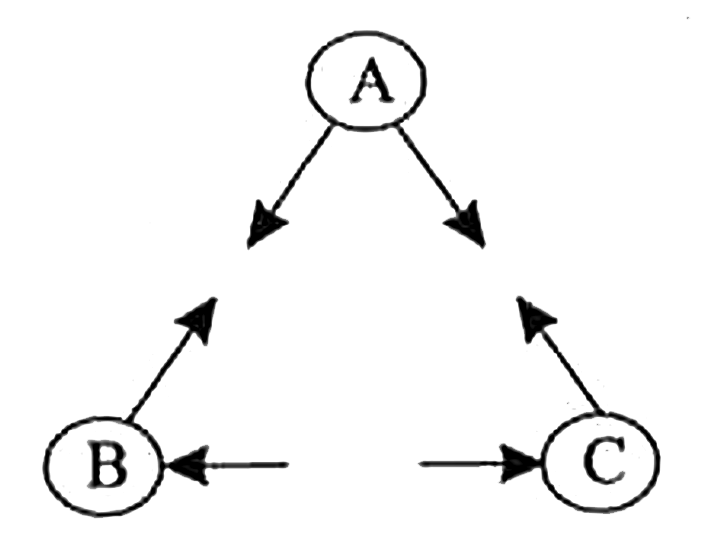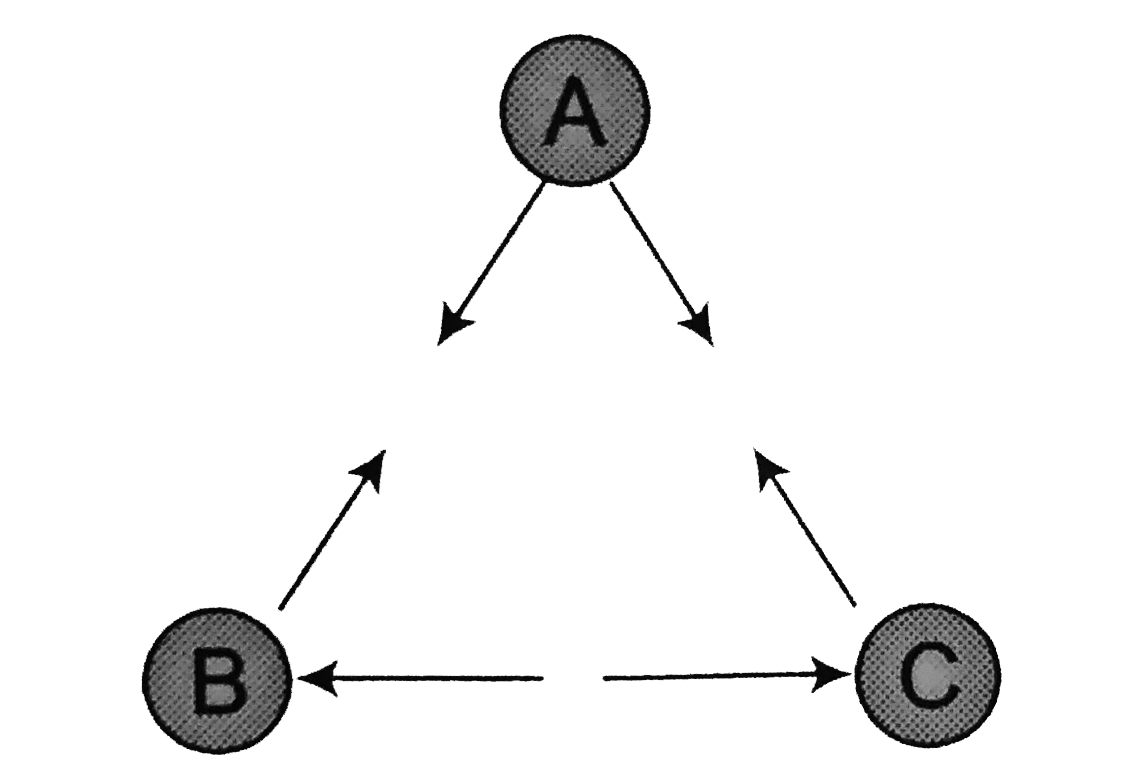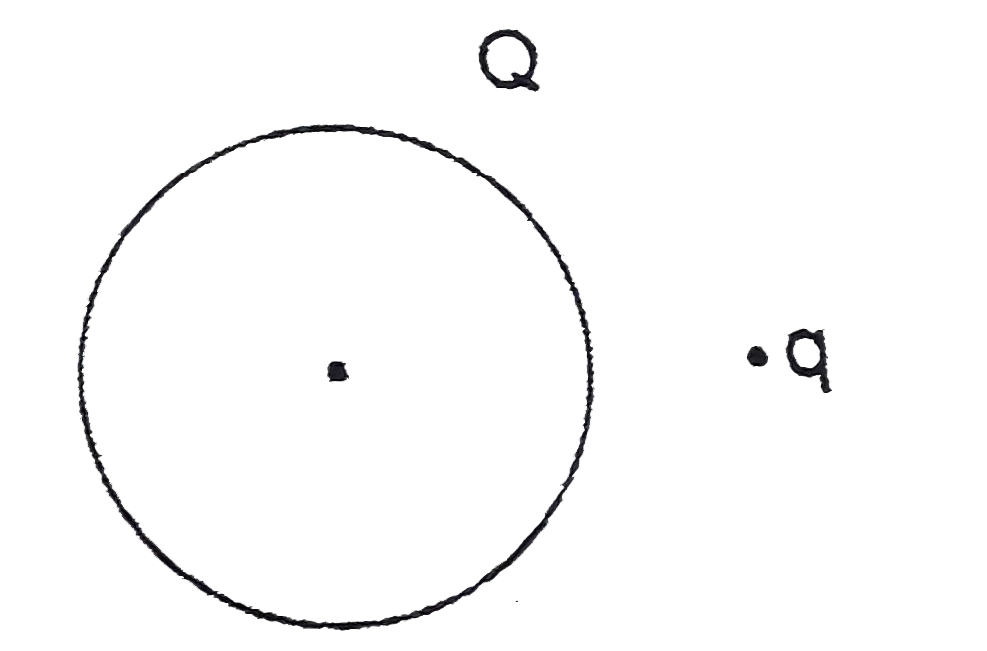The diagram shows the arrangement of three small unifromly charged spheres A, B and C. The arrows indicate the direction of the electrostatic force acting between the spheres (for example, the left arrow on sphere A indicates the electrostatic force on shphere A due to sphere B). At least two of the spheres are positively charged. Which sphere, if any, could be negatively charged?

sphere A
sphere B
sphere C
no sphere
The correct Answer is:A
It can be seen from the diagram that only the sphere B and C repel. Hence they both must e of same type. According to the fact that at least two spheres are positively charged, therefore both spheres should be positively charged. Since attraction occurs for two remaining pairs it can be concluded that the sphere A is negatively charged.
Topper's Solved these Questions
- TEST PAPERSBOOK - ALLENCHAPTER - TEST PAPERSEXERCISE - PAPER 3
99 Videos
- TEST PAPERSBOOK - ALLENCHAPTER - TEST PAPERSEXERCISE - Part-1 Physics
15 Videos
- TEST PAPERSBOOK - ALLENCHAPTER - TEST PAPERSEXERCISE - MATHS
14 Videos
- TEST PAPER 4BOOK - ALLENCHAPTER - TEST PAPER 4EXERCISE - PHYSICS
44 Videos
- UNIT & DIMENSIONS, BASIC MATHS AND VECTOR BOOK - ALLENCHAPTER - UNIT & DIMENSIONS, BASIC MATHS AND VECTOR EXERCISE - Exercise (J-A)
7 Videos
Similar Questions
The diagram shows the arrangement of three small uniformally charged spheres, A,B and C. The arrow indicate the direction of the electrostatic forces acting between the spheres (for example, the left arrow on sphere A indicates the electronstatic force on sphere A due to sphere B). At least two of the spheres are positively charged. Which sphere, if any, could be negatively charged?

View SolutionFigure shows a uniformly charged sphere of radius R and total charge Q. A point charge q is situated outside the sphere at a distance r from centre of sphere. Find out the following :
(i) Force acting on the point charge q due to the sphere.
(ii) Force acting on the sphere due to the point charge.

View Solution
Knowledge Check
Two spheres of radius a and b respectively are charged and joined by a wire. The ratio of electric field of the spheres is
AabBbaCa2b2Db2a2The electrostatic attracting froce on a small sphere of charge 0.2μC due to another small sphere of charge −0.4μC in air is 0.4N. The distance between the two spheres is
A43.2×10−6mB42.4×10−3mC18.1×10−3mD19.2×10−6m
For a uniformly charged non conducting sphere of radius R which of following shows a correct graph between the electric field intensity and the distance from the centre of sphere –
View SolutionThe electrostatic force on a small sphere of charge 0.4μC due to another small sphere of charge −0.8μC in air 0.2 N (i) What is the distance between the two spheres? (ii) What is the force on the second sphere due to the first ?
View SolutionA metal sphere of radius R is charged to a pontital V . (a ) Find the electrostatic energy stored in the electric field within a concentric sphere of radius 2 R . (b )Show that the electrostatic field energy stored outside the sphere of radius 2R equals that stored within it .
View SolutionAssertion : When two charged spheres are connected to each other by a thin conducting wire, charge flow bigger sphere to smaller sphere, if initial charges on them are same.
Reason : Electrostatic potential energy will be lost in redistribution of charges.
View SolutionWhen a positively charged sphere is brought near a metallic sphere, it is observed that a force of attraction exists between the two. It means that
View SolutionTwo metallic spheres of radii a and b are placed faraway from each other and are connected for a thin conducting wire. A charge Q is given to one of the spheres . Calculate the charge on each sphere at electrostatic equilibrium.
View Solution
